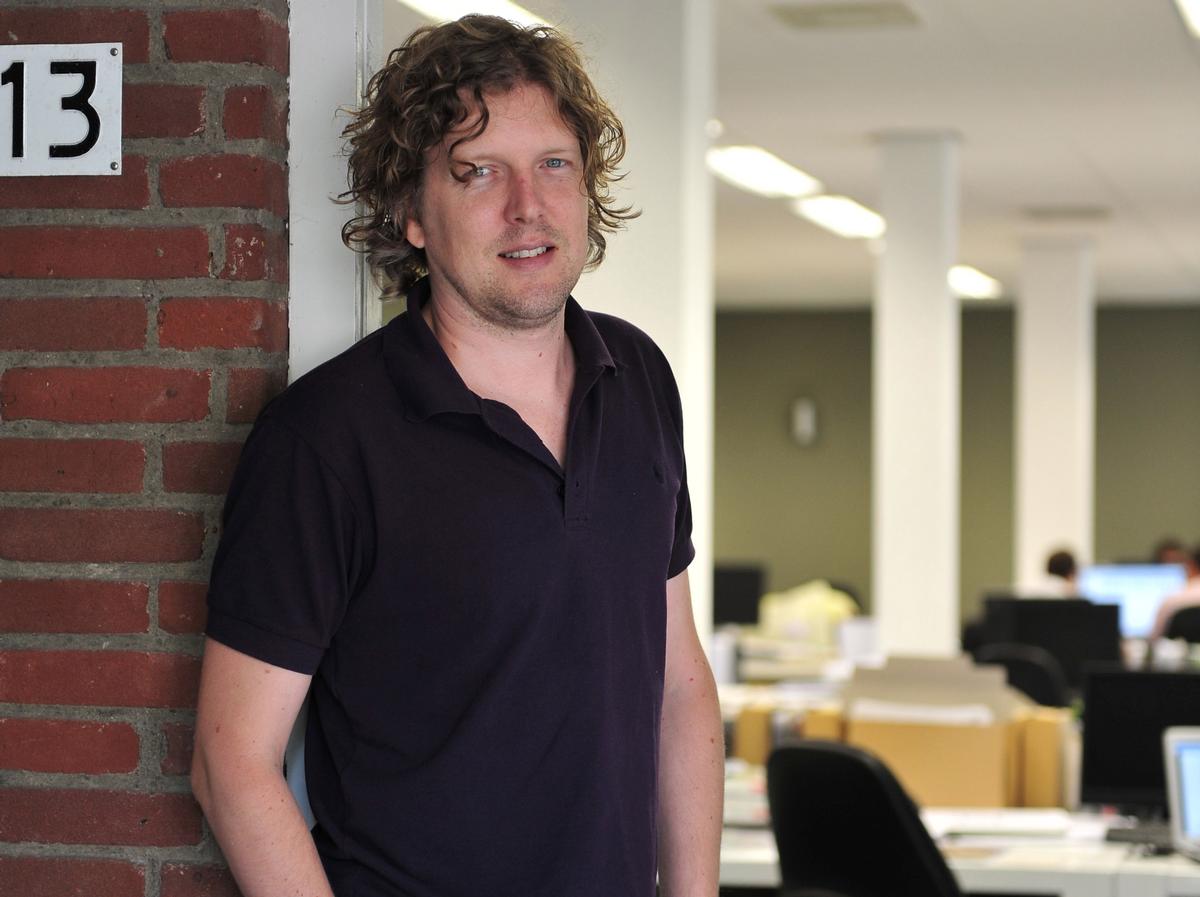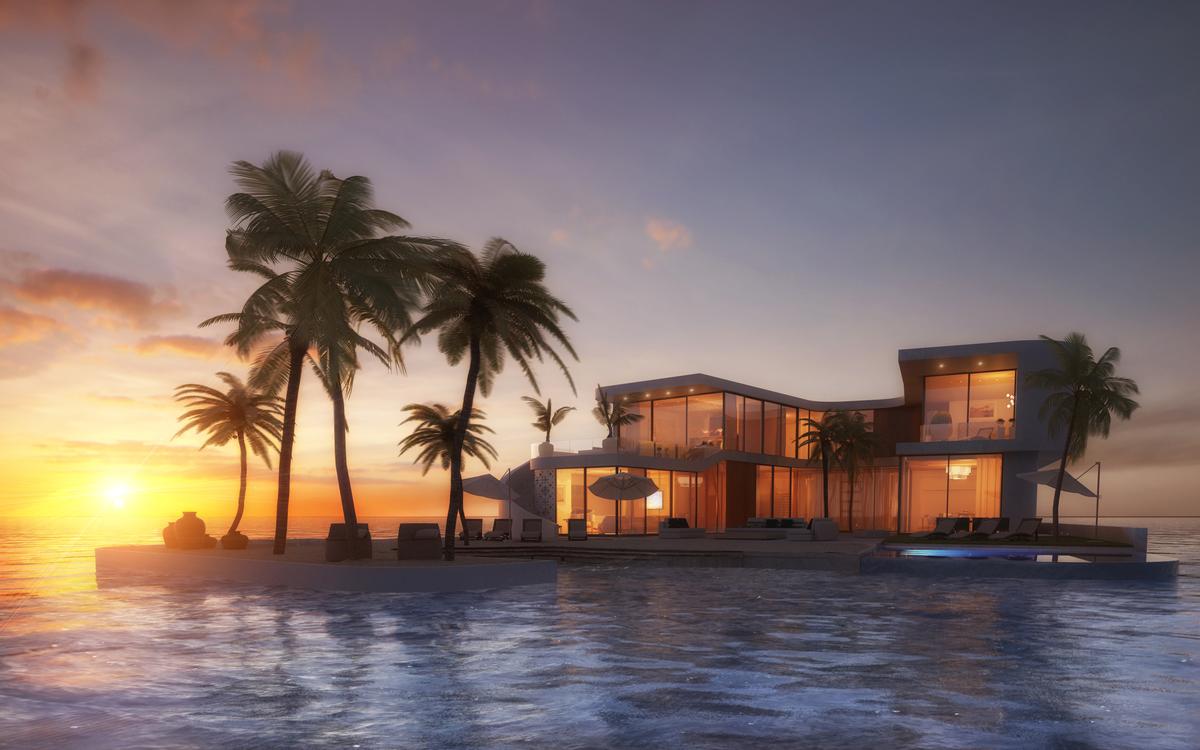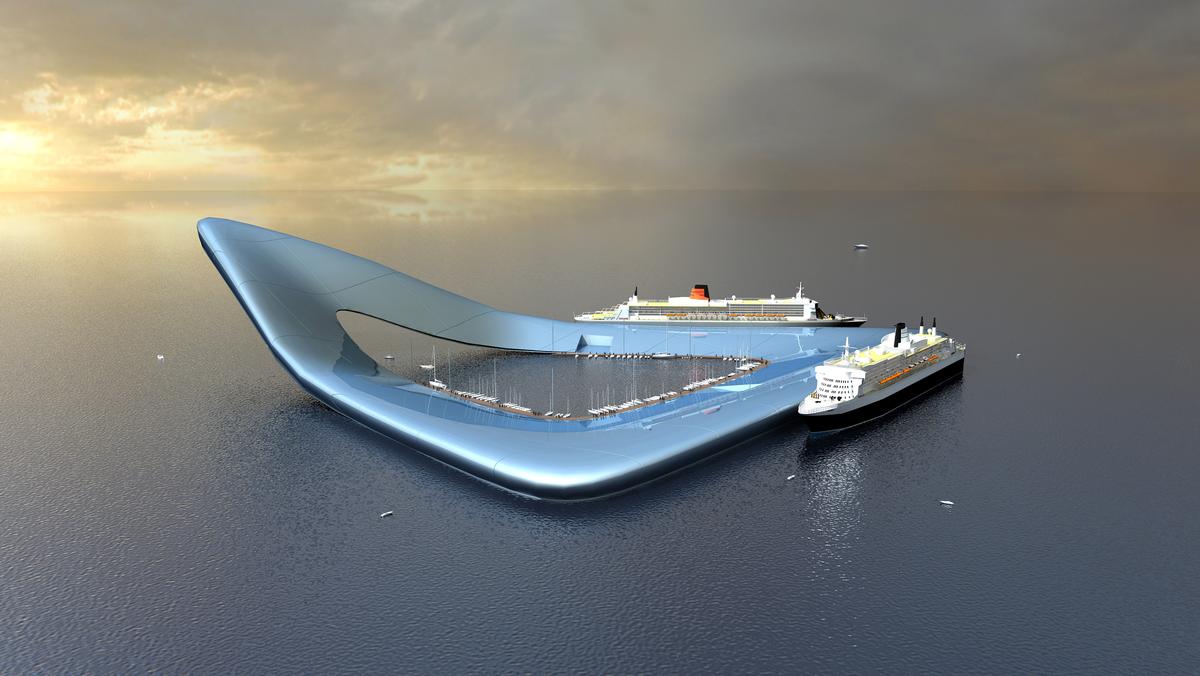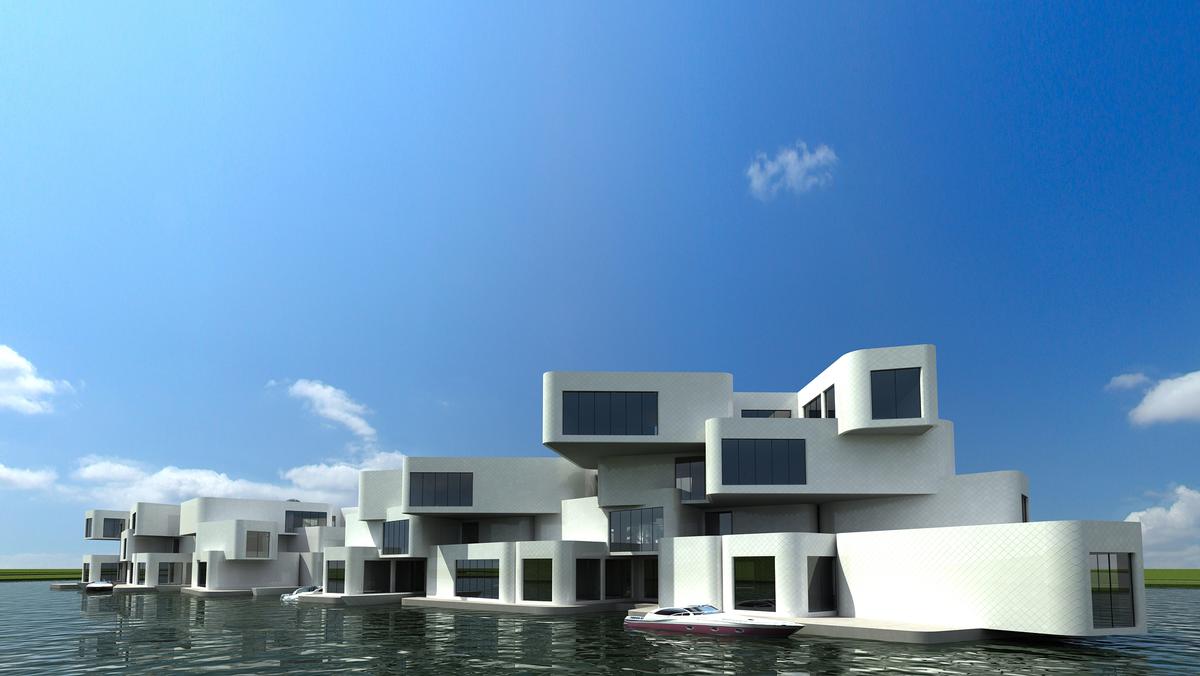see all jobs
Floating developments will soon be mainstream: Koen Olthuis
It won’t be long before living, working and spending our leisure time on floating cities is a normal part of life, according to Koen Olthuis, founder of waterstudio.
“In the next 10 to 15 years, more and more architecture will start to explore the possibilities of floating developments,” Olthuis said, speaking exclusively to CLAD. “It will grow from something that’s a fringe architecture to something that’s mainstream.”
Olthuis, a longtime proponent of water-based architecture, has designed floating resorts and hotels, apartments, mosques and schools - and even floating private islands. However, the potential for floating architecture, he says, goes far beyond one-off developments: it’s an urban planning tool.
“When I started designing floating structures, other architects thought I was crazy, but now this approach is starting to be adopted by developers,” Olthuis said. “We’re also talking to governments around the world about how floating developments can upgrade and improve their cities.”
Olthuis' modular concept is a system of floating components that can be built on and organised to extend the footprint of a waterside city. Capitalising on urban water space, these components can be pieced together to create large-scale floating neighbourhoods connected to the main city grid.
“I’m not saying we have to build floating cities, but that every city that is next to the water should have at least 5 per cent of its buildings on the water,” said Olthuis, who was included in the 2015 book Fifty Under Fifty: Innovators of the 21st Century.
Whatever the city needs can be built accordingly – or even brought in temporarily, if a city was hosting a sporting event, for example – creating a system of architecture that is not static, but responsive and dynamic.
“Take the Olympic Games. It’s so strange that every four years we build so many hotels and stadiums and only use them for a few weeks. Imagine if as a city you could just lease these floating functions from a developer,” Olthuis told CLAD.
“Qatar has the World Cup in 2022 and they need 35,000 hotel rooms for that event. But if they built 35,000 hotel rooms, within 10 years they’d be empty. So they’re thinking about using cruise ships. To host the cruise ships, they would use floating harbours and floating cruise terminals – something that can facilitate these cruise ships for a few weeks, and then after that you can bring the floating harbours to another location.”
Olthuis is also working in the Middle East exploring the potential of ecotourism, where satellite resorts could float out at sea in areas where there are coral reefs or mangroves.
“It’s one big playing field and we’re trying to work out what it means for the future of leisure architecture and real estate,” he said.
More News
- News by sector (all)
- All news
- Fitness
- Personal trainer
- Sport
- Spa
- Swimming
- Hospitality
- Entertainment & Gaming
- Commercial Leisure
- Property
- Architecture
- Design
- Tourism
- Travel
- Attractions
- Theme & Water Parks
- Arts & Culture
- Heritage & Museums
- Parks & Countryside
- Sales & Marketing
- Public Sector
- Training
- People
- Executive
- Apprenticeships
- Suppliers



















































